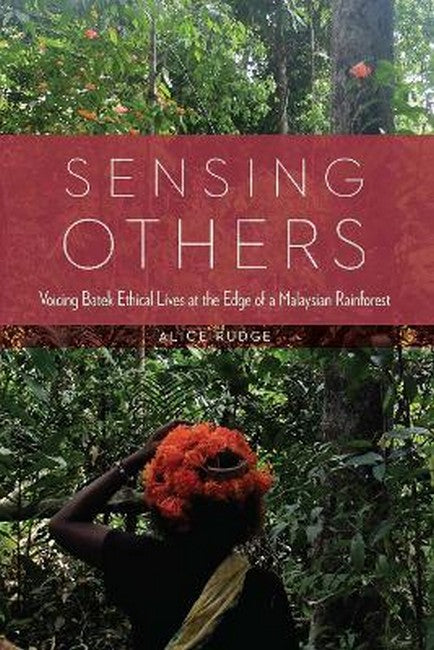Alice Rudge is a lecturer in the Department of Anthropology at SOAS University of London.
Request Academic Copy
Please copy the ISBN for submitting review copy form
Description
List of Illustrations Prelude: Friends and Strangers Author's Note List of Abbreviations Introduction: Living with Others Chapter 1. Closeness and Loss, Longing as Archive Interlude 1. Story of the pompakoh Bird, in Which a Father Becomes a Bird Chapter 2. Alone and Together, Wrongdoing and the Ethical Self Interlude 2. Story of the Batak Cannibal, in Which a Woman Escapes Chapter 3. Like and Different, Hidden Likenesses in Everyday Speech Interlude 3. Story of the ca?kAy Frog, in Which Frogs and Leaves Become Batek Chapter 4. Known and Unknown, Sensing the Intentions of Others Interlude 4. Story of a sar?t Who Flicks His "Fruit" Chapter 5. Attachment and Detachment, Sharing with Strange Others Interlude 5. Story of Hiding from Batak in the Treetops Coda: The Politics of Being Alone Appendix 1: Grammar Appendix 2: Selected Lexicon Notes References Index
"This book is very readable. It skillfully mixes narratives of Dr. Rudge's experiences, observations, and conversations with her Batek friends with folktales, photographs, and discussions of relevant anthropological theories."-Kirk Endicott, Anthropos "Sensing Others is one of the richest, most textured, and most innovative ethnographies I have read in recent years. Through her acute and deeply informed account, Alice Rudge compellingly conveys the complex nexus of emotion, experience, identity, and ethics entangled in Batek life and its scholarly representation. This is a remarkable book, a signal accomplishment, and a likely classic."-Donald Brenneis, coeditor of Law and Empire in the Pacific: Fiji and Hawai'i "In her exceptionally high-quality fieldwork, Alice Rudge noticed and understood unusually subtle levels of Batek life practice in the midst of profound change, and she conveys those understandings eloquently here. Sensing Others is a fundamental contribution to anthropology, Southeast Asian studies, linguistic anthropology, hunter-gatherer studies, and environmental studies, and to global popular understanding of Indigenous rainforest people in the Anthropocene."-Rupert Stasch, author of Society of Others: Kinship and Mourning in a West Papuan Place

